gFest, a festival that celebrates artistic expressions exploring themes of gender and diversity, has undergone a fascinating evolution from its origins in Delhi and Mumbai to its current home in Kerala. Through a rich array of films, installations, photographs, mixed media works, and interactive discussions, gFest invites participants to immerse themselves in a thought-provoking exploration of societal narratives and creative expressions.
We spoke with Vani Subramanian from reFrame, Aditi Zacharias from Kerala Museum and Nandini Valsan from Raising Our Voices Foundation to learn more about this year’s edition and their dedication to showcasing new artistic voices while sparking meaningful discussions. Here are the edited highlights from our conversation:
1. What interesting contrasts or new dimensions have you noticed as gFest transitioned from Delhi and Mumbai to Kerala?
It’s been an amazing growth that we are witnessing from the first gFest in Delhi to Mumbai and now finally in Kochi. What started as a multi artist, multi art form exhibition in a black box theatre in Delhi, and travelled to 2 interactive spaces in a college in Mumbai has now bloomed to its full potential in terms of how beautifully we have been able to showcase the works of 21 artists at the Kerala Museum – giving each work its own space to shine, to reveal its depth and detail, and create opportunities for viewers to engage with the unique perspective and expression of the artists, the lived experiences the work is based upon and the art form the artist chose to work in. This has also created unique forms of engagement for diverse viewers – from works on film, to those more visual and tactile in both physical and digital mediums; as well as craft based and even more cerebral research based works. Not surprisingly, the response to gFest Kochi has been so amazing that the show has now been extended till 2nd June 2024… making it a 3.5 month long celebration of gender and the arts at Kerala Museum!
2. If there is one takeaway from gFest that you hope attendees and participants carry with them long after the festival ends what would that be?
We hope that participants, guests, attendees will all carry back the fact that there is nothing simple or binary about gender; that it is deeply embedded in systemic hierarchies such as caste and class and minority/majority identities, ethnicity etc that complicate our gendered experience… and that it is only through bearing witness to these differences, and learning to listen and absorb that we can truly become more sensitive to each other.
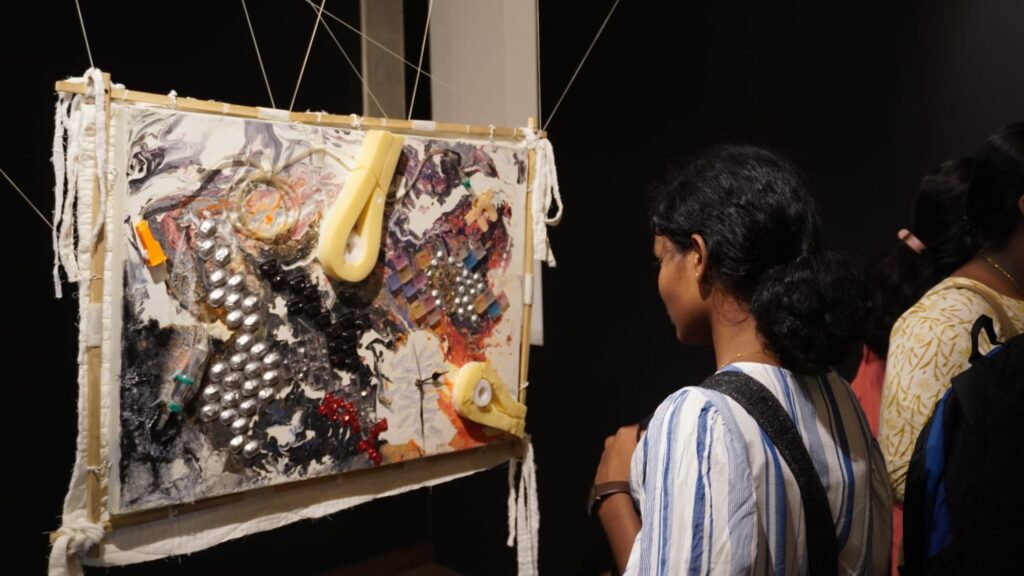
3. What role do you see gFest playing in promoting gender inclusivity and advocacy for marginalised groups within the broader cultural and artistic landscape of Kerala and India?
reFrame is a small and young initiative to support and mentor the creation of works by emerging artists from all over the country. In its efforts towards making a difference, it makes conscious affirmative choices in the selection of fellows and does its best to help the work of the artists – be they individuals or collectives – to try and create the best possible version of the works they set out to create. The other unique aspect of reFrame’s work has been gFest – a travelling festival that supports artists by taking their works to different parts of the country to newer audiences and spaces, and to provide their works with some visibility. Another complementary effort has been the gender, art and us workshops that use the same works of art to discuss the complexities of gender in the real world.
4. What are some common misconceptions that first-time attendees might have about gFest, and how does the actual experience often surprise or exceed their expectations?
In popular tropes, people often think gender is all about women or at most, also about transwomen. Often visitors come in with expectations that the works and conversations surrounding them will be limited to such an understanding. However, when they engage with the works and the conversations, they often make connections between their own lived experiences and their own gender/caste/class/regional/religious location… that moment of clarity is a valuable learning they often carry back with them.
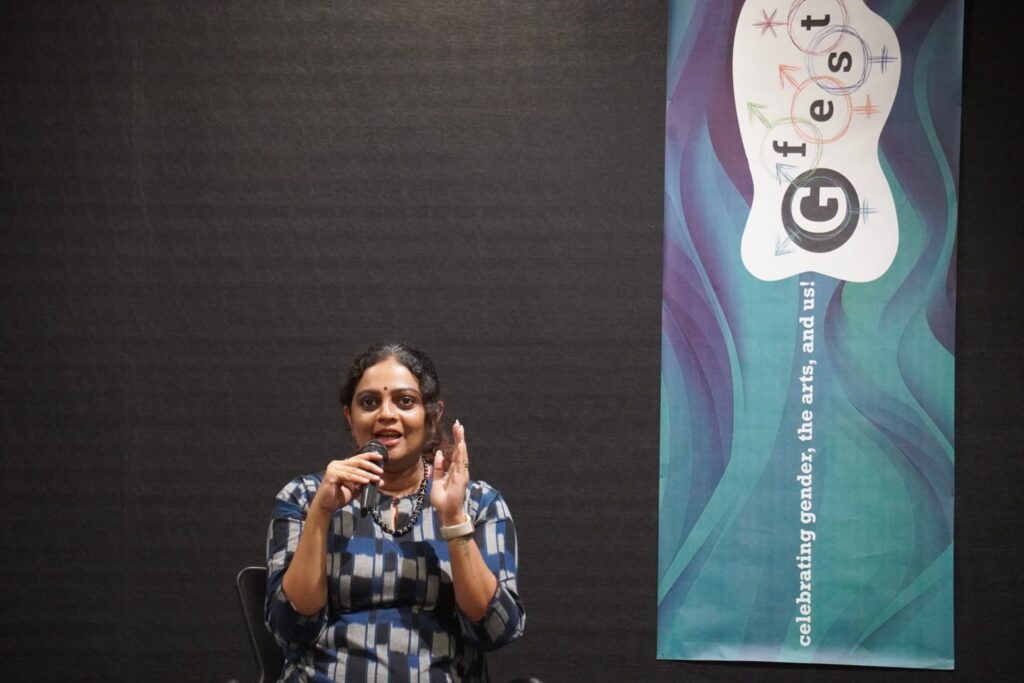
5. Can you share any success stories or transformative experiences from gFest that highlight the festival’s impact on artists?
Many of the artists showcased are first time artists or those seeking to experiment in newer forms, or even creative folks who were reluctant to call themselves artists… but through the completion of these works we have seen them getting to feel their own creative power and its effect on people which has been amazing. One set of works currently showcased at Kerala Museum have actually been created by five women who had discontinued their practice for familial, marital and other reasons. Creating this work together has reaffirmed their resolve to reclaim themselves as artists, and strengthened their determination to continue with their practice.
6. What are some of the highlights of this year’s gFest that showcase the diversity and depth of artistic expressions addressing gender and identity?
The works showcased at gFest Kochi, go far beyond gender and identity. Five broad themes are highlighted at the fest:
STRUGGLES OF THOSE WHO LIVE OUTSIDE THE GENDER BINARY – as showcased through an award winning feature film as well as a live theatrical performance.
WOMEN AND WORK – as showcased through a photo exhibit, an online zine, and a series of documentary films on women in the gig economy, to women in cloth recycling factories in Haryana, factory to women activists fighting to preserve their forests in Jharkhand to the travails of women from the North East who come to Delhi in search of livelihood.
GENDER AND DISABILITY – as showcased through a mixed media show, and a live performance.
PERSONAL AND POLITICAL STRUGGLES OF WOMEN – as showcased through a spoken word and song performance; as well as a series of experimental and documentary films on a sufi storyteller in Assam whose dreams, nightmares and harsh political realities keep conflating with each other; the story of an elderly woman writing her memoir; a young woman ruminates on her schizophrenia, and young women in Kashmir survive the triple lockdown.
FOCUS ON KERALA HISTORY – as showcased through an illustrated story that captures the struggles of women fishworkers for independent and safe transportation facilities in the late 1970s, followed by a historic conversation between the artists and the activists themselves!
WEEKLY PROGRAMMING – workshops, readings and many interactive sessions are constantly being programmed by our outreach partner, Raising Our Voices Foundation, a gender rights NGO in Kochi. The events are curated with content more relevant to the local population in Kochi, and their gendered concerns – be it the torment of toxic relationships, the need for knowledge on legal rights, navigating life changing phases like menopause, or the joy and abandon of belly dancing!
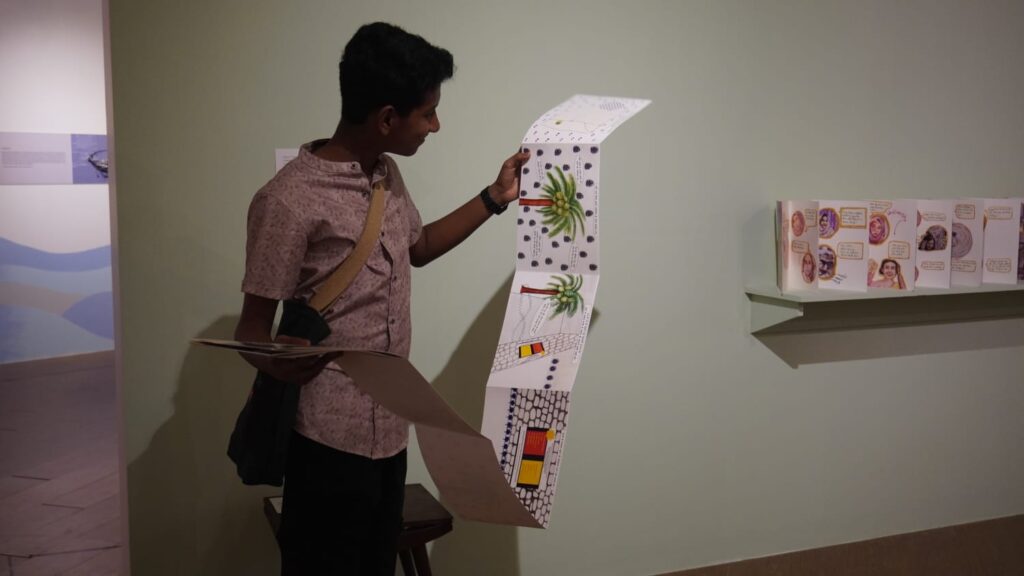
7. Looking forward, what are the key goals that gFest aims to undertake in advancing its mission of using art to unpack gender and its intersections in meaningful and innovative ways?
We believe art is an agent of social change, though its forms and details may keep evolving. We are excited by the fact that the journey of gFest has just begun… and are excited to see where all it goes in the future!
8. Can you share some insider tips or recommendations for attendees to make the most of their experience at gFest, from choosing which events to attend to navigating the venue?
The Kerala Museum is a warm and welcoming space. All our programmes are publicised on the social media handles of @reframe_arts; @keralamuseum and @raisingourvoices_foundation. Follow us, bookmark the events you’re interested in, and be there. Beyond that, all you need to do is come with the readiness to listen and see. Come with the time to engage. Come with the willingness to be surprised, excited, touched, moved and even challenged. See you there!
For more articles on festivals in India, check out our Read section of this website.
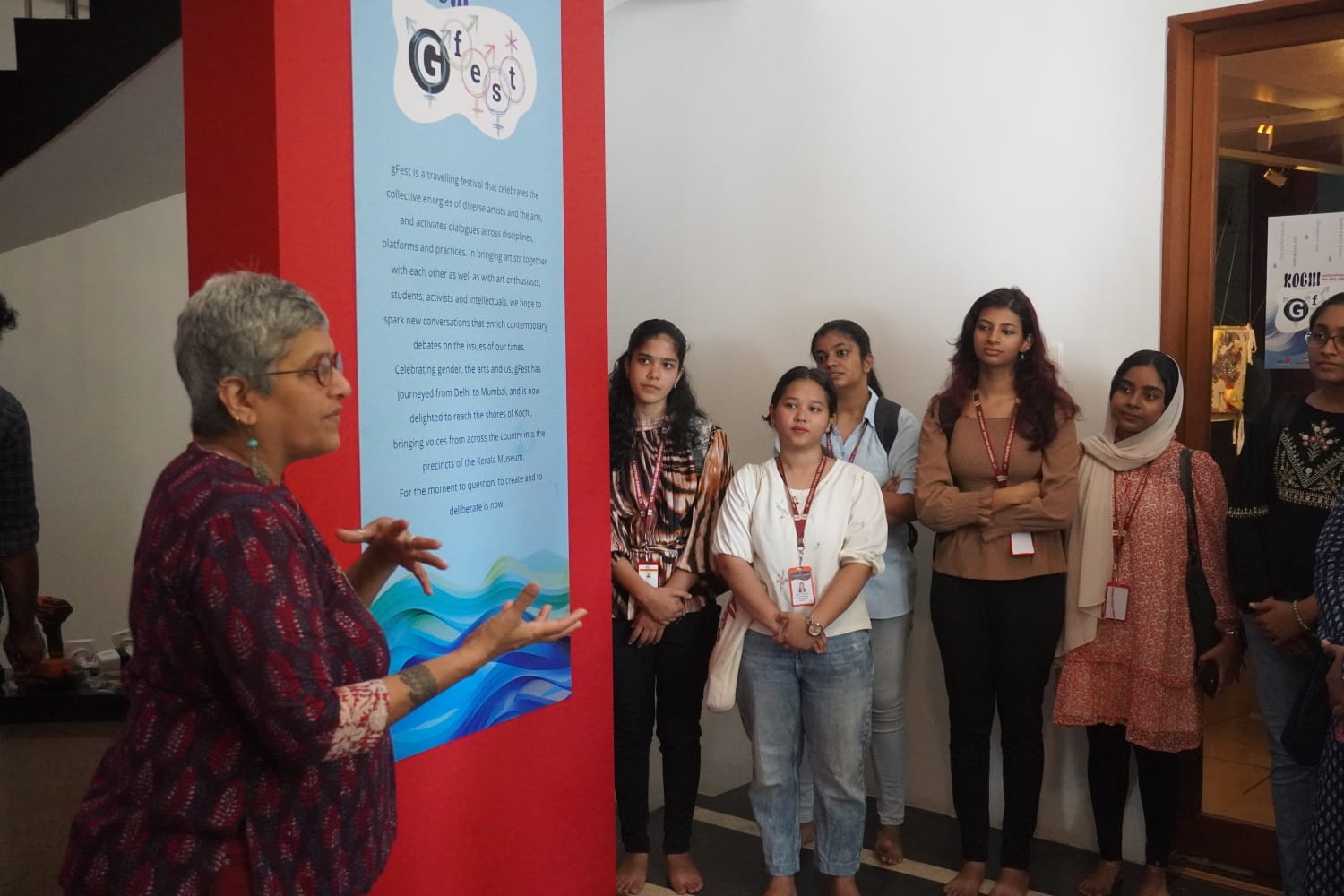
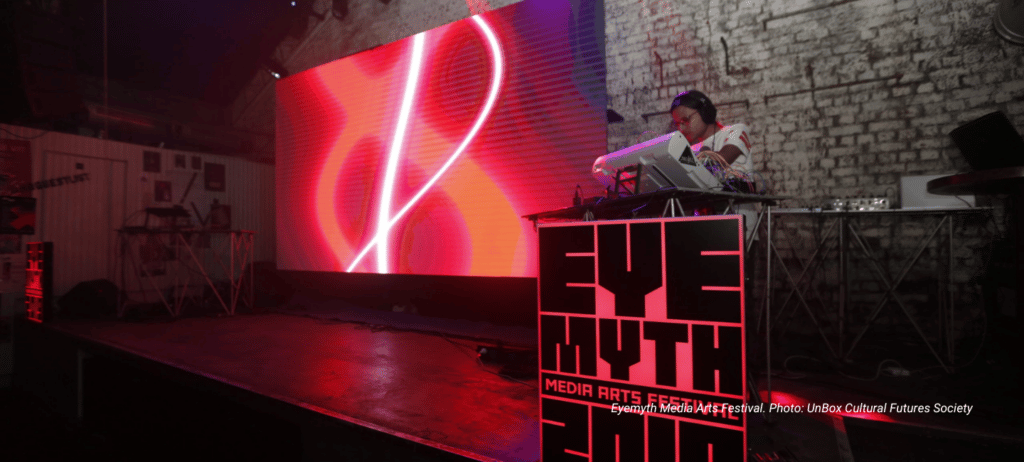
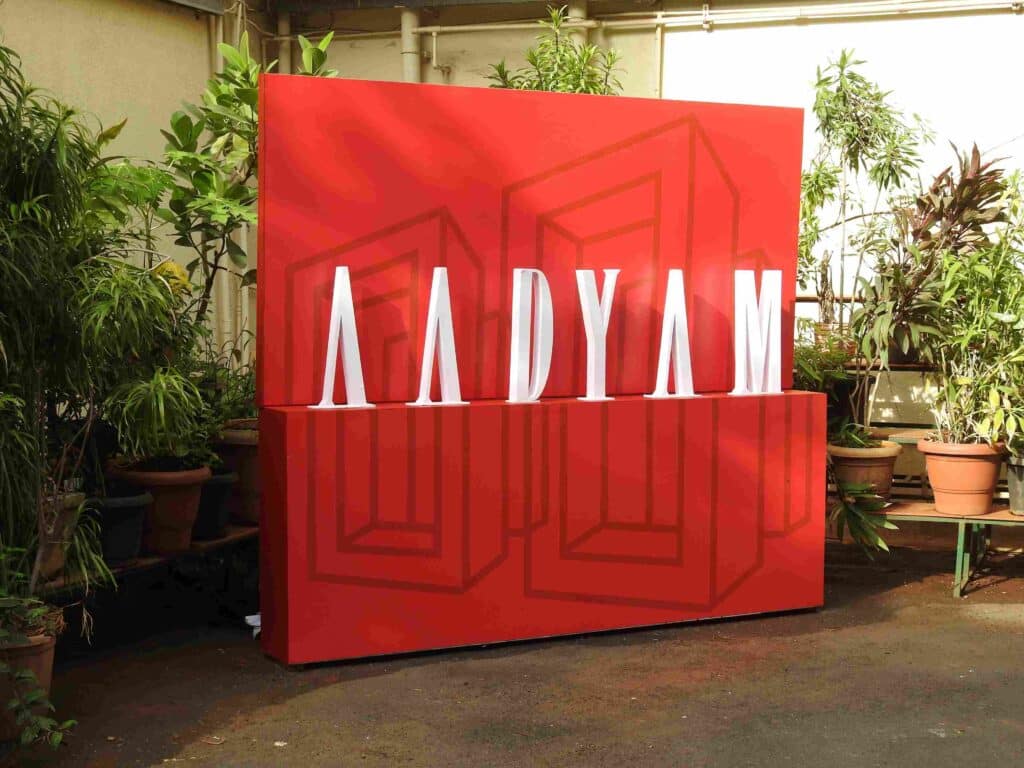
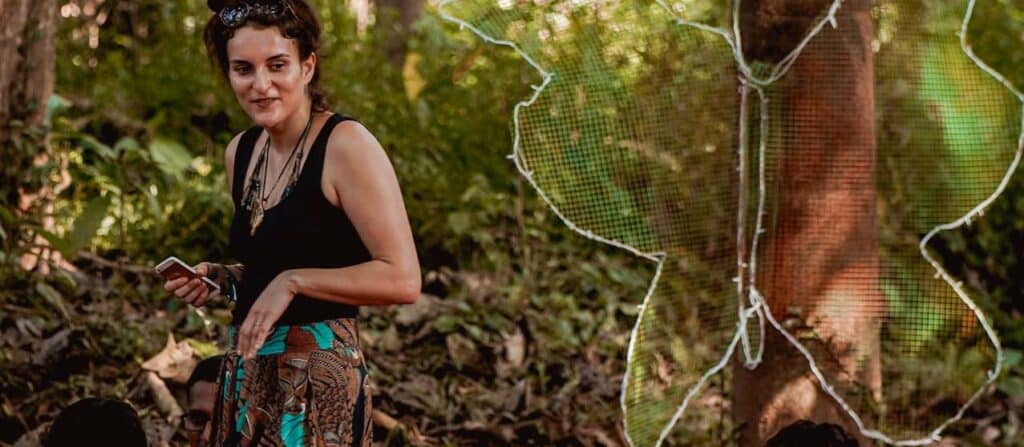
Share on